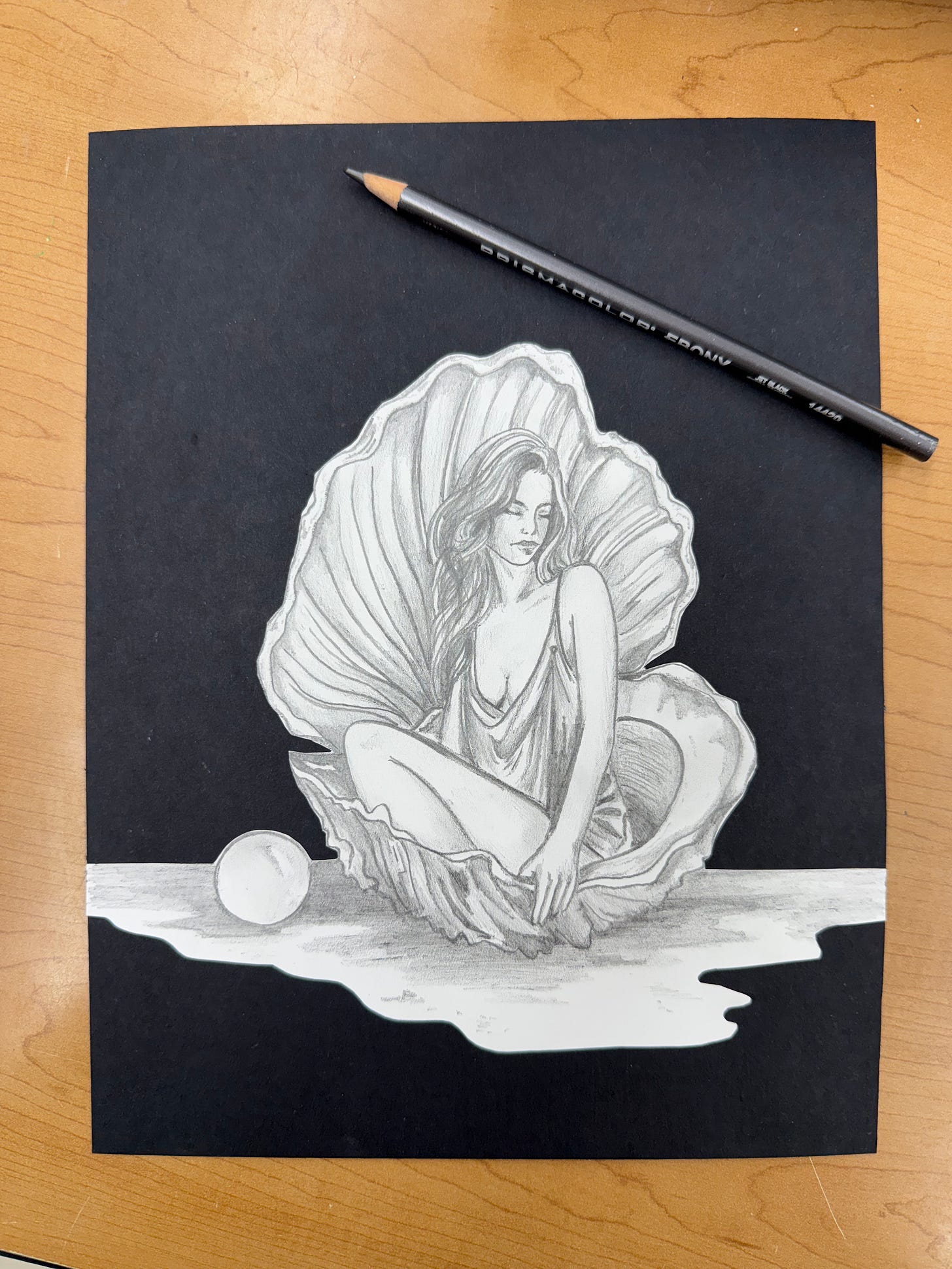We treasure pearls, diamonds, and other precious stones, elevating them to symbols of beauty, love, and luxury. We forget, though, that these marvels of the earth are not born perfect. They are the result of tension, time, and transformation. A pearl forms when an irritant, often a grain of sand, lodges itself inside an oyster. The oyster responds, not by rejecting the discomfort, but by wrapping it in layers of nacre, turning pain into something luminous. Diamonds? They're born 90 miles beneath the Earth's surface, under intense heat and pressure, forced to evolve over billions of years before they ever reach a jeweler’s glass case.
Isn’t it ironic that we admire the process when it comes to materials, but recoil from it in people? We don’t hesitate to put a diamond on a ring, or wear pearls to mark milestones, yet when people carry the weight of experience, trauma, heartbreak, loss, recovery, we often label them as damaged, complicated, or worse, a “red flag.” But life doesn’t spare any of us. It challenges, chisels, and reshapes us. Shouldn’t that be a mark of value?
Think of someone who’s been through addiction and come out the other side. Or someone navigating the long road of healing after abuse. Think of the single parent rebuilding life from scratch, or the friend who survived betrayal but still shows up with kindness. These are not cautionary tales. These are success stories. These people are not broken. They are rare. They are radiant. Like the earth’s most sought-after treasures, they’ve endured unimaginable conditions and come out stronger, more nuanced, and infinitely more human.
In a world obsessed with perfection, filtered faces, curated feeds, pristine resumes, we’re missing the point. The grit is what sometimes gives a person their glow. There’s wisdom in the scar tissue, beauty in the unraveling and reweaving of one’s identity. Instead of fearing people’s “baggage,” maybe we should ask what they’ve learned from carrying it. What if we saw resilience as refinement, and not a flaw?
Even gold must go through fire before it shines. Meteorites, literal pieces of the cosmos, carry the weight of space and time. Sea glass, once jagged waste, becomes smooth and collectible after a long tumble through salt and stone. The Earth has always been the master artist, refining through hardship. So why are we so quick to dismiss the very same process in ourselves and each other?
Maybe it’s time we recalibrate what we value. Maybe we begin to see emotional resilience, humility, empathy, and the courage to face life head-on as the new currency of beauty. To look someone in the eyes and see the stories behind them, not as warnings, but as reasons to lean in. To ask better questions. To admire not just who they are now, but what they had to go through to become it. It’s important to acknowledge someone’s past because it’s part of the story that shaped them, but it should never be used to define their worth. Growth is only possible when we honor the lessons life has taught, not when we weaponize someone's history against them. A past that has been faced, worked through, and left behind is not baggage—it’s wisdom. If we truly believe in transformation, we have to leave space for people to become more than what they’ve survived. That’s grace.
The truth is, none of us make it through unscathed. But if we let it, pressure can polish. Friction can refine. And if we honor the human journey the way we revere the earth’s creations, we’ll realize something profound: we are all precious materials in the making. The same pressure that forms pearls and diamonds is the pressure that shapes resilient souls. What scars us also sculpts us. Precious things are made, not born—and so are we.





